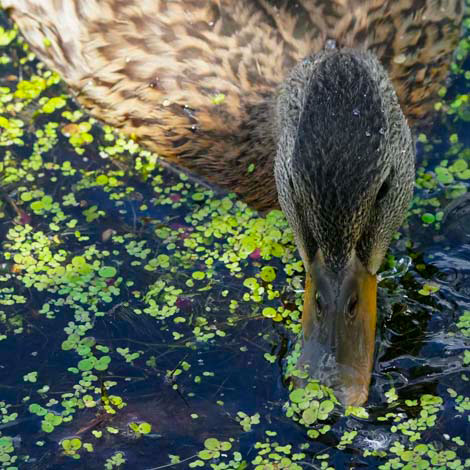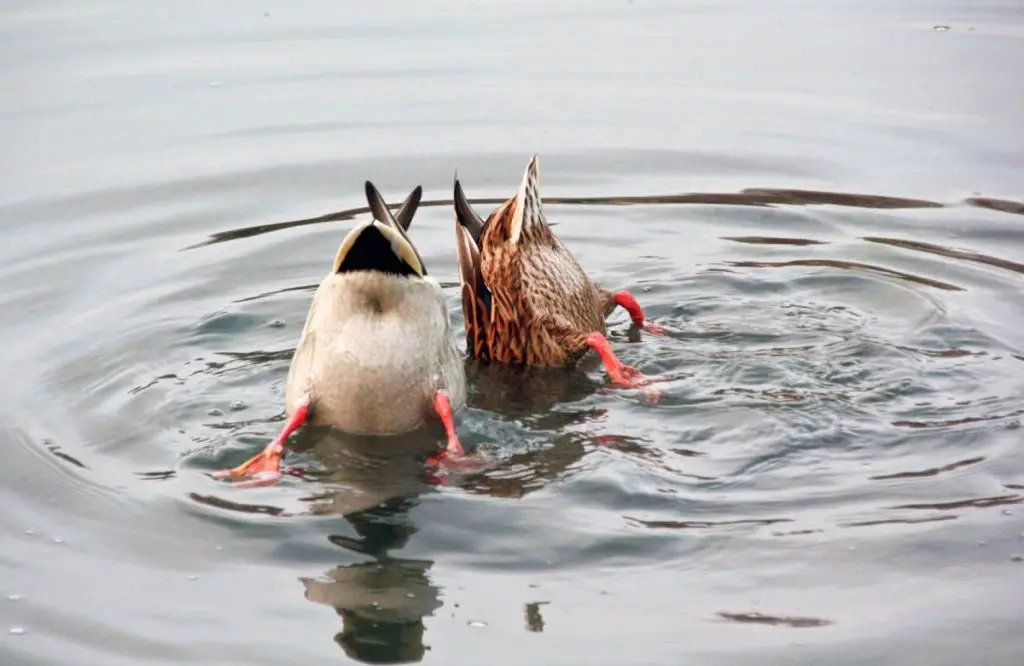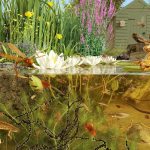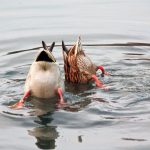When you think of ducks, you might picture them gracefully swimming in a serene pond, quacking contentedly as they paddle around. But have you ever wondered what these charming waterfowl eat in their natural habitat?
Well, wonder no more! In this article, we’ll explore the fascinating world of duck diet and find out what these delightful creatures love to munch on in ponds.

Credit: www.thepondguy.com
What Do Ducks Eat?
Ducks are omnivorous creatures, which means they have a varied diet consisting of both plant and animal matter. Their natural diet is diverse and includes a wide range of foods that they find in and around ponds and other bodies of water.
Plant Matter
One of the staple foods in a duck’s diet is plant matter. Ducks love to feast on various aquatic plants such as pondweed, water lilies, duckweed, and algae. These plants provide essential nutrients and fiber that help keep ducks healthy and nourished.
Moreover, ducks are also known to forage on land for grass, weeds, and grains. They have a special knack for finding and consuming seeds, grains, and other plant-based food sources that are abundant in pond surroundings.
Animal Matter
While ducks primarily rely on plant matter for sustenance, they are not averse to consuming animal matter when the opportunity arises. Insects, snails, small fish, and tadpoles are all on the menu for ducks. They are skilled at dabbling and diving to catch these small aquatic creatures, adding a protein-rich component to their diet.
Feeding Behavior
Ducks have unique feeding behaviors that allow them to efficiently gather food from ponds. They are dabbling ducks, meaning they tip forward in the water, tails pointing skyward, to reach underwater plants and invertebrates. This dabbling behavior is a common sight in ponds, as ducks search for their favorite aquatic treats.
Additionally, ducks are also known for their diving capabilities. Diving ducks are adept at submerging themselves to hunt for food, including aquatic insects and small fish. Their ability to dive and swim underwater allows them to access a wider variety of food sources in ponds.

Credit: www.birdspot.co.uk
Feeding Patterns
Ducks are diurnal feeders, meaning they are most active during the day. They typically feed in the early morning and late afternoon, spending the rest of the day resting and preening their feathers. This feeding pattern aligns with the natural cycles of their environment and helps them avoid predators while foraging for food.
Supplemental Feeding
While ducks are adept at finding natural food sources in ponds, they can also benefit from supplemental feeding by humans. Providing duck-friendly foods such as cracked corn, barley, oats, or duck pellets can help supplement their diet, especially during harsh winter months or when natural food sources are scarce.
However, it’s important to note that feeding ducks should be done responsibly and in moderation. Too much human-provided food can lead to nutritional imbalances and disrupt their natural foraging behaviors.
Conclusion
In conclusion, ducks have a diverse and adaptive diet that allows them to thrive in pond environments. From munching on aquatic plants to snacking on small aquatic creatures, ducks are well-equipped to find nourishment in their natural habitat.
Understanding what ducks eat in ponds not only provides insight into their fascinating feeding behaviors but also underscores the importance of preserving their natural habitats. By protecting the ecosystems that sustain them, we can ensure that these delightful waterfowl continue to thrive and enchant us with their graceful presence in ponds around the world.
So, the next time you spot a duck paddling in a pond, take a moment to appreciate the remarkable variety of foods that sustain these charming creatures in their watery home.





